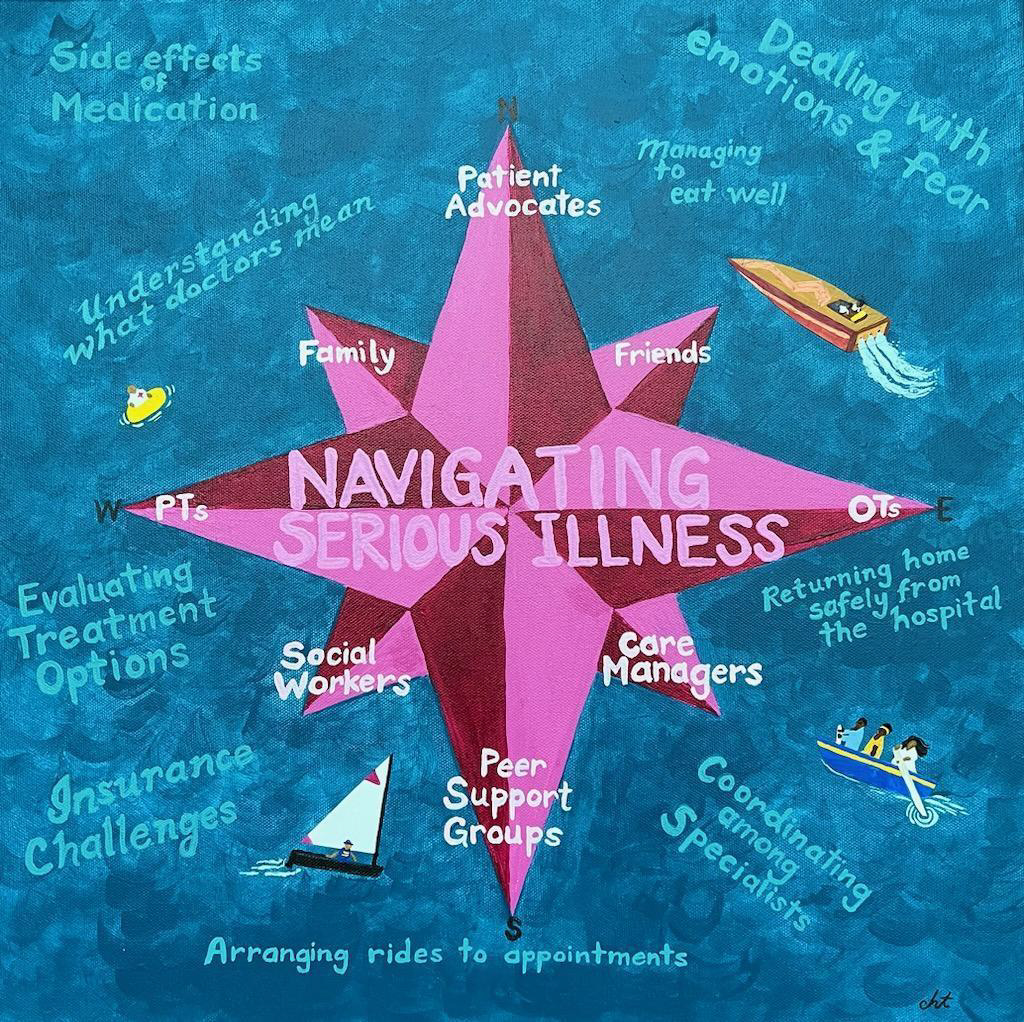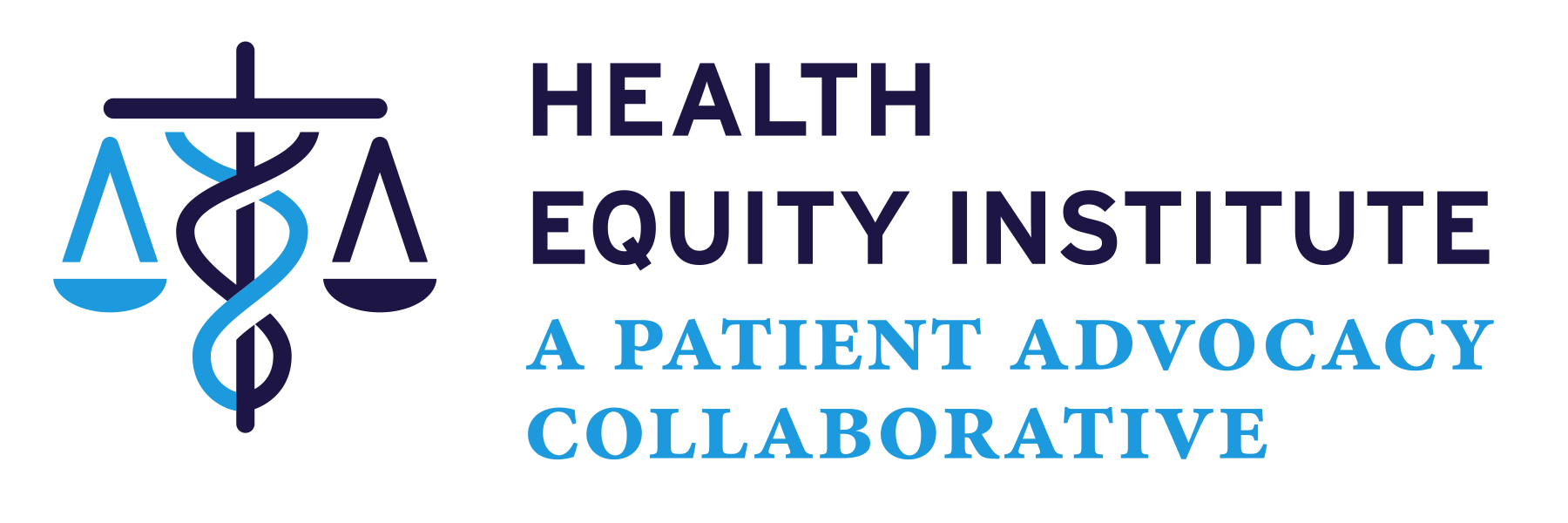COPING WITH SERIOUS ILLNESS
Anyone may feel overwhelmed and lost when first faced with a health crisis. This is true even of health professionals! Most Americans also worry they won’t be able to afford the costs associated with a serious illness or injury. It is challenging to juggle new medications, treatment, therapy, hospitalization and potentially, longer term care–especially when combined with the demands of work and childcare. The mental health of patients, families and caregivers is frequently overlooked but an essential part of the healing process. Many people feel uninformed, afraid and unsure, but hesitate to discuss these concerns with friends, family or with their doctor.
YOU ARE NOT ALONE.
HEI offers resources and guidance so that both physical and mental health care is
more accessible and affordable.
Our goal at HEI is to listen, inform and connect patients to resources that help to avert or cope with a health crisis. Knowledge is power: HEI’s goal is to share that knowledge in a way that empowers patients to better advocate for themselves. This includes not just strengthening your own knowledge base and self-advocacy tools—but knowing how and when to reach out to family, friends, and professional health care advocates for support. We want to be there BEFORE your healing becomes a crisis.
HEI strives to be the first step in mapping out your plan to getting well.
WHAT IS PATIENT ADVOCACY?
Patient advocacy is simply defined as the offering of guidance and support to patients so they can make informed decisions about their health and medical care.
An advocate can play an essential and important role as part of the health care team and can help with
● Improving communication and coordination with your medical team
● Preparing for and accompanying patients to medical appointments
● Managing transitions between hospital, rehab/skilled nursing and home
● Understanding a diagnosis and finding credible information
● Questions about insurance benefits, denials and appeals
● Making phone calls and keeping track of paperwork
● Identifying community resources and support
● Researching and understanding options for treatment and services
● Keeping family informed and in the loop about a patient’s care, as appropriate
● Discussing end of life planning
A patient advocate can also be a friend or family member!
Patient accompaniment, whether by a friend, family member or professional advocate, has been shown to:
● Increase patient engagement,
● Improve physical and mental health
● Decrease mortality
● Improve adherence to medication.
Many health care systems now recognize the importance of health advocacy and the power of patient accompaniment.

OUR MISSION
HEI envisions a health care system in which ALL individuals can maximize the healing process by understanding their diagnosis, knowing their options and mapping out the best road to recovery. Health situations can be complex and overwhelming; it is important to turn to family, friends or a professional health care advocate to share the burden.
THE PROCESS
1. DIAGNOSIS
Learn about the medical challenges you face
Learn everything you can about your illness or injury to minimize fear, maximize understanding and accelerate healing. Make sure to consult reliable sources.
2. ORGANIZATION
Figure out your strategy and next steps
Map out a strategy to meet your challenge and identify who will be on your team to make those good things happen
3. FINANCES
Make a plan
Know what your insurance covers
Know what resources are available to you for support and financial help.
Being methodical and determining small steps reduces anxiety and puts you in control of your situation.
STEPS TO COPE WITH A NEW DIAGNOSIS / SERIOUS ILLNESS / INJURY
Knowledge. Knowledge truly is power—and with that power comes peace of mind. Try to find the resources on your diagnosis that are written specifically for patients. If one doctor doesn’t know, keep asking. Some reliable resources are listed at the bottom of this page.
Priorities. Ask your doctor if there are urgent medical situations you need to be aware of and how to address those immediately should they arise. In the case of Type 1 diabetes, for example, that could include how to recognize and treat low and high blood sugars. You should leave the hospital knowing how to treat any such urgent situations and how to recognize those situations. Ask about side effects from new medications and potential interactions with medications you already take.
Get Organized.
Preparing ahead of time for a doctor’s appointment can be very helpful. All clinicians are short on time. So it is worth thinking about (and writing down) what your most important health concerns are–and try to get those across to your practitioner at the very start of the appointment. You can even send your questions and concerns to the doctor via the patient portal or by fax so they know what you want to talk about even before they walk into the room.
Tips for your doctor’s appointment: keep a notebook.
Start a notebook or folder to collect your laboratory tests, radiology results, bills and your notes from doctor’s appointments.
This is what should go in the notebook that you take to all doctor’s appointments:
- Date of birth
- Allergies
- Emergency contacts
- Health insurance information
- A copy of insurance cards
- Medication list
- List of all your clinicians and their contact information
- Login information for your online patient portal
- Medical history summary
- Copies of recent/important test results
- Advance directives and health proxy forms
- Notepad and pens
Medication tips. Take any medication on time and according to instructions. Get a pillbox. Remembering to take pills is particularly difficult when your schedule changes—and in most people’s lives, schedules change on a daily basis. Pillboxes and timers are good reminders. Patients who take their medication on time and in the right way feel better; and likely heal better. Success breeds success.
Accommodations. Many patients with serious medical illnesses work better with certain accommodations, a protection accorded to those with serious medical diagnoses under the Americans with Disabilities Act. It is better to be proactive and request accommodations up front–not later, when the need is urgent. Accommodations can be asked for not just at work, but also in elementary school, middle and high school or college.
FIND A SUPPORT GROUP
Many patients find comfort and learn by talking with others who have faced similar health issues. Some support groups are better than others. Don’t feel pressured to stay with a group that does not meet your needs. See below for recommendations or contact HEI for suggestions.The two that we recommend below are specifically for cancer patients but there are many others:
- Imerman Angels (imermanangels.org) provides free, personalized one-on-one cancer support between mentors and mentees to provide comfort and understanding.
- Another excellent cancer support group is Triage Cancer (triagecancer.org).
The best part of joining such a group is feeling that you are not alone. These can be amazing communities–ones, perhaps, that you never wanted to be a part of but are thankful for daily.
Build your team. Your team does not have to include the providers who saw you in the hospital or to whom you were initially referred. Build a team of clinicians who will work with you, share your concerns, and who will make you feel like what you are worried about matters and is legitimate. Find people with whom you feel comfortable discussing your symptoms, who can answer your questions and who can explain what to expect as your treatment progresses. Your team must be knowledgeable about your diagnosis. Pulling together a supportive and knowledgeable team makes everything else easier.
SEEK OUTSIDE GUIDANCE IF NECESSARY
You are not an island! There are many professionals who are skilled in supporting patients through the various challenges posed by the health care system. These include:
- Patient advocates/care managers
- PT/OT who come to the home
- Hospice agencies
- Insurance planners
- Massachusetts program of all-inclusive care for the elderly (PACE)
- Daily money managers
- Psychotherapists
GETTING TO A NEW NORMAL
There is no question that there will always be a feeling of “before” and “after.” But for many diagnoses, the “after” can get easier–particularly if these resources and strategies are taken advantage of.
RESOURCES*
*Please feel free to share with us YOUR suggestions for resources or support groups that you have found helpful. We are grateful for your input and will follow up on any suggestions that could help others.*
The Basics: knowledge
Helpful information about diabetes, heart disease, cancer and the basics of many diseases and conditions can be found on the Mayo Clinic website.
For Type 1 diabetes, we recommend Dr. H. Peter Chase’s Understanding Diabetes (University of Colorado Barbara Davis Center). Free and well written with very clear, easy to understand explanations.
Free programs in Massachusetts that support patients
The program of all-inclusive care for the elderly (PACE) is devoted to keeping elderly patients in their homes; it offers social work assistance, medical support and more.
Excellent free webinars/articles on navigating the healthcare system
Navigating the Health Care System
Advocate Gayle Byck (In Tune Health Advocates) gives a superb talk on the nuts and bolts of successfully navigating the health care system
A New Diagnosis? Don’t Hit the Panic Button
This blog is for patients facing a new diagnosis with Type 1 diabetes–but the suggestions can apply to anyone suddenly facing a new diagnosis– and how to meet the challenge of any new medical condition.
Webinars and articles about health advocacy
“Be your own health advocate” (April 26, 2023)
Dr. Heidi Kummer, The case for patient and health care advocates. Shine Lecture, BU School of Public Health, 2023.
White paper on the benefits of patient advocacy: https://chcao.org/wp-content/uploads/2023/09/White-Paperv4.pdf
Who will Speak for Me? Massachusetts Coalition for Serious Illness Care on How to Choose a Health Care Proxy
Where to find a health advocate
Massachusetts Health Care Advocates
The Alliance of Professional Health Advocates
Assistance with medical billing issues
Center for Patient Partnerships in Madison, WI
Offers general free patient advocacy, and is particularly strong on assistance with medical billing issues
Health Law Advocates
Provides free legal assistance to income-eligible Massachusetts residents having difficulty accessing health care or health insurance coverage. They also provide legal assistance to consumers with unaffordable medical debt.
Books
George J. Annas, The Rights of Patients: The Authoritative ACLU Guide to the Rights of Patients (ACLU Handbook).
Atul Gawande, Being Mortal.
Atul Gawande, Better: A Surgeon’s Notes on Performance.
Jerome Groopman. How Doctors Think.
Tracy Kidder, Mountains Beyond Mountains
On the importance of fighting for social justice and the power of one person’s dedication to make a difference. This book gets to the heart of HEI’s mission—especially Dr. Farmer’s idea of “accompaniment.”


